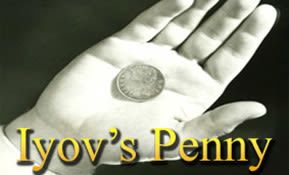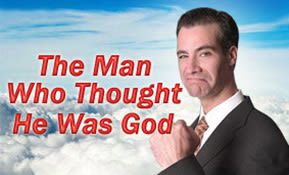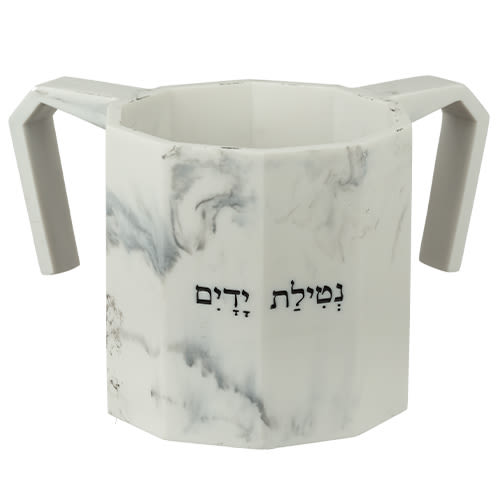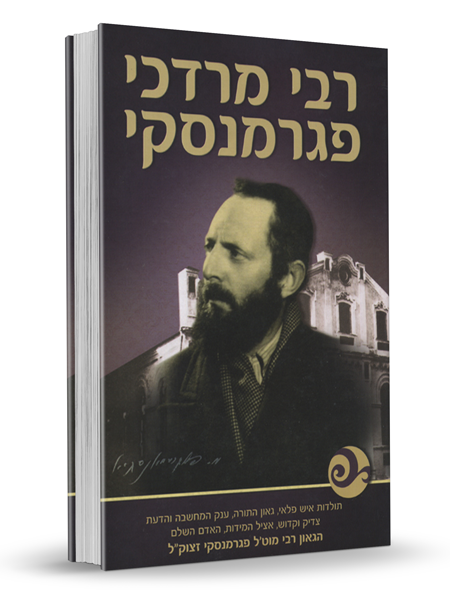
Bamidbar: Reb Yossele’s Tshuva
"That's true,” retorted Reb Yossele’s father, “but I didn't know then how devastated I would feel about it. Everyday I feel sick and angry when I think about how my son is acting."

Parshat Bamidbar
"God spoke to Moshe (Moses) and Aharon (Aaron) saying . . . This is what you must do for them [the tribe of the Kehosites] that they shall live and not die" (Bamidbar 4:19).
* * *
This verse teaches that all the Hebrew tribes had to give freely to support the Levites, who did not have a share in the Land and were commanded not to earn their livelihood as craftsman. The Levites, whose main job was to serve in the Mishkan and to educate others, were on the level of paupers and were primarily supported by the tithes given by the Israelites. Therefore the meaning of our verse can be explained to mean, “Do not rob the pauper.”
Every Jewish person has a neshama, a soul, that is actually a part of God. Therefore, since we cannot know the true merit and stature of any soul, we are urged by our holy Sages to show respect to every person and to perform acts of kindness, such as conversing with and helping every person (MeAm Loez Bamidbar 4:17-20).
* * *
The father of Reb Yossele Chatiner was a devout follower of the holy Baal Shem Tov. After many years of marriage, and no children, Reb Yossele's mother finally prevailed on her husband to speak to the Baal Shem Tov about their plight and to beg for his blessing that they have a child.
The next time Reb Yossele’s father went on his yearly visit to his Rebbe, the Baal Shem Tov, he had yichidus (private meeting) with the Rebbe. At the meeting, he pleaded, “Please, Rebbe, give us a blessing to have a son.”
The Baal Shem Tov stared into a holy book for what seemed an eternity. And then he raised his eyes and said in a serious tone, “I will give you a blessing to have a son. But, I must warn you that your son will rebel (ben sorer u’moreh)."
Reb Yossele's father responded, “I can live with that Rebbe, if I know my son will ultimately return to the path of a Torah life.”
The Baal Shem Tov thought for a minute and then slowly responded, "Yes, eventually he will return."
Without another thought, the father answered, "Yes Rebbe, please give us a blessing for a son."
Within the year, little Yossele was born. His parents were overjoyed. But after his Bar Mitzvah, Yossele started to rebel. He eventually declared himself an apostate (renouncing his Jewish faith).
Yossele left his family and went to live and work with a cobbler, who was also a Jewish apostate.
Yossele’s father was extremely upset. He went to the Baal Shem Tov and said, “Rebbe, if I had known that my son would turn out this way, I would not have begged you for a blessing to have a son. It would have been better had he never been born!”
The Baal Shem Tov reminded him, "I told you that the boy would rebel."
"That's true,” retorted Reb Yossele’s father, “but I didn't know then how devastated I would feel about it. Everyday I feel sick and angry when I think about how my son is acting."
The Baal Shem Tov had compassion for the anguished father and said, “I will give you an amulet (hand written charm to bring good fortune)."
The Baal Shem Tov wrote out an amulet on a piece of parchment and gave it to the father. "Now, if you can arrange for your son to touch this amulet, he will do teshuva (return to the Jewish path of serving God)."
The father took the amulet home and patiently waited until his son Yossele was away. Then, he snuck into the cobbler’s house and hid the amulet among a pile of his son’s things, where he would certainly touch it.
Yossele returned to the cobbler's home and reached into the pile of his things where the amulet was hidden. When he touched the amulet, he was suddenly overcome with shock and fear. “What have I done!?” he cried. He immediately regretted his many sins.
Reb Yossele decided to travel to the Baal Shem Tov and beg for help in returning to his Jewish roots.
The Baal Shem Tov greeted him warmly, "Reb Yossele, I hope all is well with you and your family. It’s been many years since you last came to visit with your holy father. So what can I do for you?"
"Please Rebbe," said Reb Yossele with tears and in a sobbing voice, “I've fallen from the Jewish path. Help me return."
The Baal Shem Tov happily began to teach Reb Yossele the path of teshuva.
Reb Yossele eventually became a great Tzaddik (Holy man). He traveled around the Ukrainian countryside, urging his fellow Jews to return to a Jewish life. Wherever Reb Yossele went, he would tell his own story. He would always end with, “Look, my dear brothers and sisters, just how far teshuva reaches. I was already at the forty-ninth gate of tumah (spiritual impurity) just like our forefathers in Egypt when God personally came and took them out. Now, through doing teshuva and following the path of the Baal Shem Tov, I’ve reached such a high level that I can read peoples’ thoughts. But you, my brothers and sisters, whose sins are small, if you do a heartfelt teshuva, imagine what spiritual levels you can reach!"
And so it was.
***
Tzvi Meir Cohn attended Yeshiva Hadar Hatorah in Crown Heights, Brooklyn after completing his university studies in Engineering and Law. While studying at the Yeshiva, he discovered a deep connection to the stories and teachings of the Baal Shem Tov. His many books about the Baal Shem Tov can be found in the Breslev Store. He can be contacted at howard@cohnpatents.com.











5/19/2023
BSD
Thank you for telling this amazing story. We want Moshiach now! Bye Guys